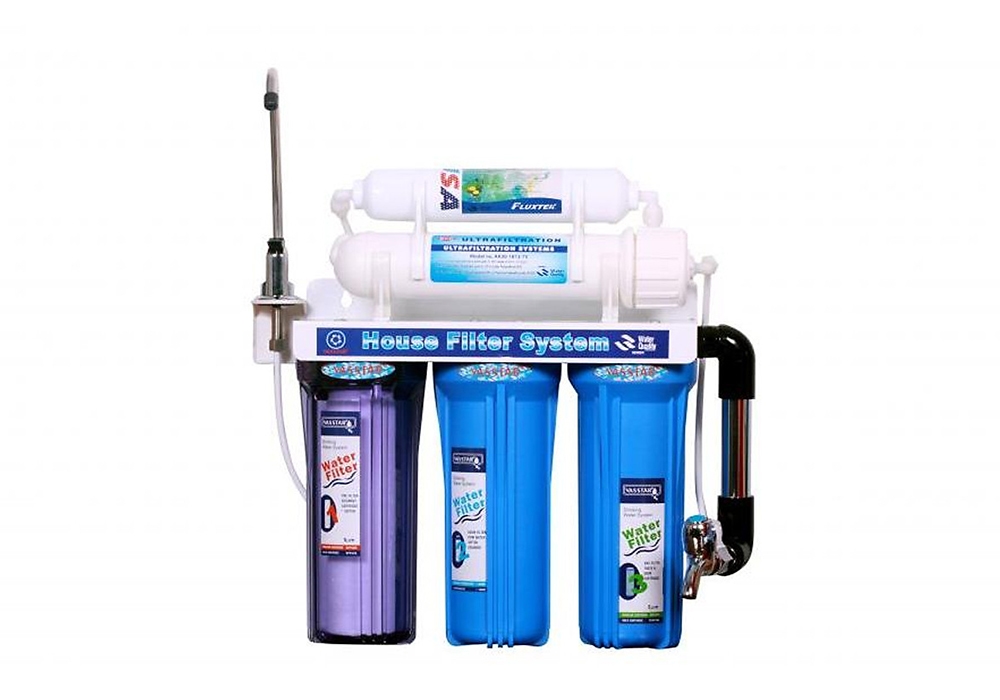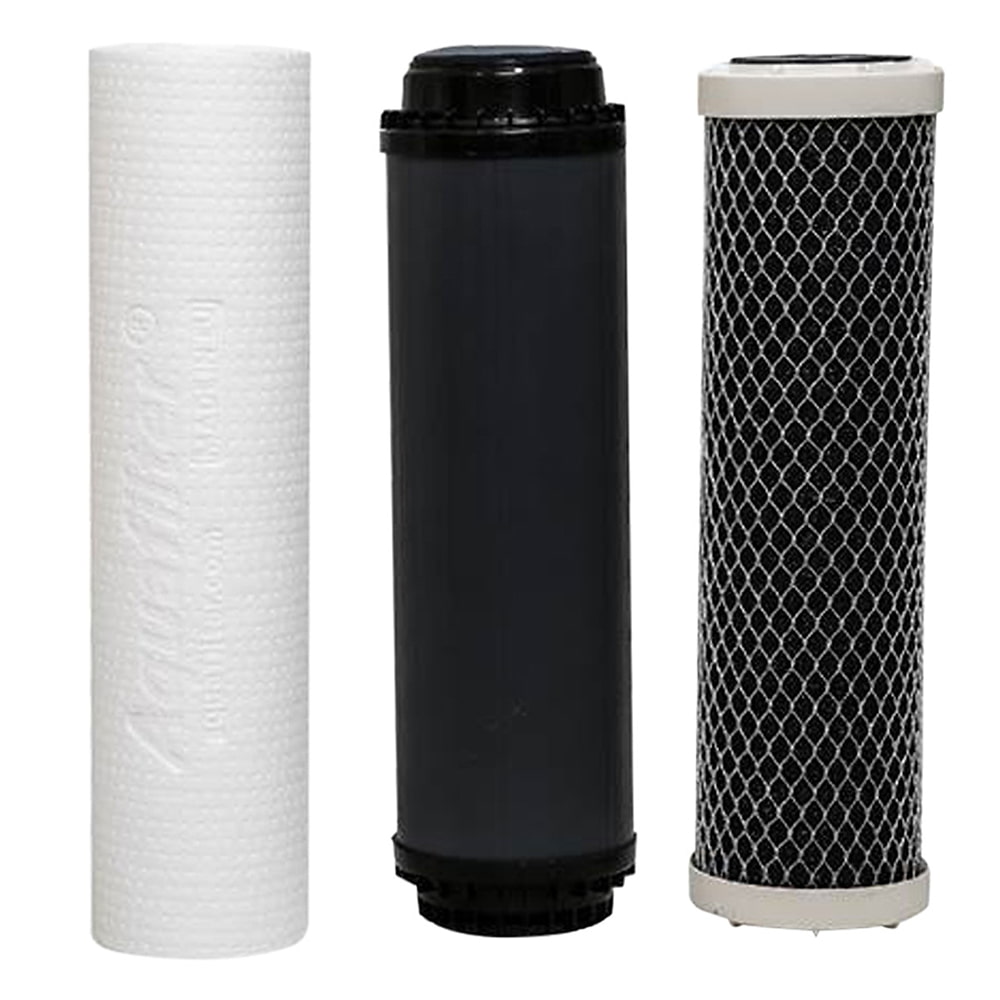Have you ever stopped to consider what makes your drinking water so pure and refreshing? It’s not magic; that’s science. Water filters work tirelessly behind the scenes, turning dirty, contaminated water into the clean, fresh drink we often take for granted. But how exactly do they achieve this transformation? Dive in as we explore the mechanics of different filtration systems.
What is a water purifier?
A water filter is a cartridge, system or device that removes impurities, such as sediment, heavy metals, chlorine, VOCs and TDS from water. A water filtration system can serve the entire house or connect to a single faucet or fixture. A whole-house water filtration system can be used to protect against bacteria that can harm the digestive tract, sediment or minerals that can damage pipes, or contaminants that can cause water to become cloudy. unpleasant odor or taste. Water filters that connect to a single faucet are commonly used in kitchens, where clean water is needed for drinking, cooking, and washing dishes.
How does a water purifier work?
Water filters run water through porous material to remove impurities. Some water filtration systems, such as distillation, do not use filter media to remove impurities. Although not technically filters, these systems are discussed in the same way as water filters because they achieve similar goals. Although some types of water filters work very similarly, each type removes contaminants in its own way.
Types of water purifiers
There are many water filtration systems for home use, and each of these systems removes different contaminants from the others. When purchasing a water filter, it is important to understand the composition of your home water so you can make the most informed decision.
Mechanical water filter
Mechanical water filters contain some type of mesh, strainer, or other porous material that helps remove suspended particles from the water as it flows through it. Two common types of mechanical filters are sediment and ceramic filters.
Sediment water filter
Sediment water filters are designed to remove sediment, dirt, and other particulate matter from water. They are one of the most widely used types of filtration because of the benefits they bring to other filtration systems. For example, reverse osmosis systems and ultraviolet water filtration systems require sediment filtration to protect the system from damage and ensure the quality of the final product.
In addition to protecting other filtration systems, whole house sediment filters can also protect a home’s plumbing system by removing particles before they can clog pipes and appliances. Once this sediment accumulates in your plumbing system, it is expensive and difficult to remove. Therefore, sediment filters are a great addition to any water filtration system.
Ceramic water filter
Ceramic filters remove suspended particles from water as it flows through tiny pores on the ceramic surface. The holes in the ceramic filter are 0.5 microns in diameter, meaning objects larger than 0.5 micrometers (0.0005 mm) cannot pass through. These filters remove sediment, turbidity, approximately 99% of disease-causing bacteria (such as E. coli and salmonella), and microbial cysts from water.
Ceramic water filters are often configured in a multi-stage design for more comprehensive filtration. These filters consist of a ceramic shell impregnated with silver ions, a carbon core and ion exchange resin. In this configuration, the ceramic housing removes particulate matter and repels bacterial growth, followed by an activated carbon filter that removes chlorine and VOCs, and finished with an ion exchange resin that removes metals. heavy type.
Reverse osmosis system
Reverse osmosis (RO) systems produce some of the purest water possible from a home water filtration system. RO water is very pure because it goes through a multi-stage filtration process. The basic stages of a reverse osmosis system include a sediment filter, a carbon filter, and a reverse osmosis membrane. Additional stages, such as remineralization filters and additional carbon filters, are included in some RO configurations. In areas where hard water is common, a water softener should be used as a pre-treatment for the RO system to protect the membrane from clogging with minerals.

RO systems are commonly used in so-called point-of-use applications. This means they are only connected to one outlet, such as a faucet. These systems provide extremely pure water for drinking, cooking and dishwashing. Due to their efficiency, they are one of the most popular filtration systems today. However, some homeowners reject reverse osmosis systems because of their ineffectiveness. A standard home reverse osmosis system produces approximately 5 gallons of wastewater for every 1 gallon of purified water. Some RO systems are more efficient than others, and steps can be taken to increase the efficiency of an installed RO system. For many homeowners, the cleanliness of RO water is worth the price compared to the amount of wastewater produced.
Activated carbon water filter
Activated carbon filters can be found in almost every home, whether they are in refrigerators or water pitcher filters. They work through a process called adsorption, which binds particles to carbon as it passes through the filter. Carbon filters are commonly used to reduce chlorine and chloramine levels in water treated by municipal water plants. This gives the water cleaner, more flavor and aroma. In addition to chlorine and chloramine, activated carbon filters remove trihalomethanes, mercury, pesticides and herbicides. Some carbon filters may also be certified to remove lead, iron, heavy metals and coliform.

Carbon filters are used in many types of filtration systems. For example, reverse osmosis systems always use at least one carbon filter in the filtration process. Refrigerator filters, as well as water pitcher filters, often use carbon to remove odors and unpleasant tastes from water. When using a water softener on treated municipal water, you should run a carbon filter before the water softener to prolong the life of the water softener resin.
Softens water
Water softeners, also known as ion exchange systems, remove water hardening minerals from water by exchanging sodium ions with calcium and magnesium ions. Water softeners use plastic beads charged with negatively charged sodium ions to attach to positively charged magnesium and calcium ions. As water passes through the beads, ion exchange occurs, removing hardness from the water.
In areas with hard water, water softeners prevent the damage that hard water can cause to plumbing systems and appliances. Limescale buildup in pipes can be the result of long periods of hard water flowing, leading to low water pressure and shortened equipment life. Hard water can also shorten the life of your water filtration system. Although reverse osmosis systems can remove water hardness on their own, these minerals can clog the RO membrane and make the system less efficient. Incorporating a water softener before the reverse osmosis system ensures that the RO system will not become clogged with water hardening minerals.
Ultrafiltration system
Ultrafiltration systems produce extremely clean water by passing water through a 0.02 micron membrane. This removes practically all contaminants from the water except dissolved minerals. Because it does not remove minerals from water, ultrafiltration is often used instead of reverse osmosis systems by those who want to maintain the mineral content of their water. Ultrafiltration systems also do not produce as much wastewater as RO systems, so homeowners in water-restricted states may prefer ultrafiltration over RO. Like reverse osmosis systems, ultrafiltration systems are often installed under the kitchen sink to collect water for drinking and cooking.
Water filtration system
By definition, water filtration systems are not water filters because they do not have a medium through which the water flows. Instead, they use a variety of methods to purify water without putting it through a physical filter. However, because they produce purified water from a contaminated source, water filtration systems are often called filters. The most common types of water filtration systems are water distillers and UV water purifiers.
Distill water
Water distillers provide the highest purity water among other home water systems. Because of their effectiveness, they are the only water treatment method accepted for specific applications in laboratories, hospitals, and automotive cooling systems. Water distillers work like the natural hydrological cycle, converting contaminated water into vapor and allowing the water to condense and fall. The contaminated water is fed into a water distiller in a boiling chamber, where it is heated into steam. This vapor rises to the ceiling of the distillation apparatus, where it returns to its liquid state. Once enough water has accumulated on the ceiling of the distiller, it will drip into a new container. Since the boiling point of water is different from the boiling point of the contaminants, all impurities remain in the boiling chamber.
Renters who want high-quality water but are not allowed to install an ultrafiltration or reverse osmosis system under their sink can greatly benefit from a countertop water distiller. Although the distillation process is slow, taking about 4 hours to produce a gallon of pure water, it gives you peace of mind knowing that the water it produces is as pure as possible.
Ultraviolet water purifier
UV water purifiers neutralize microorganisms in water by exposing them to specific wavelengths of UV light. They are used on water that contains microbiological contaminants, such as bacteria, viruses and parasites, so they are not typically used for municipal water treatment. Therefore, they are most often used in families that get water from wells. However, in the event of a boil water advisory, a UV system can protect homeowners using municipal water sources from water-borne illnesses.
UV water purifiers rely on sediment filtration to maintain their performance and effectiveness. If sediment enters the UV system, it will block UV light from reaching some microorganisms. UV systems are also used in conjunction with other types of filters, such as reverse osmosis, to complete a powerful filtration system.
Whole house water filters versus point of use
A whole house water filtration system connects to the main water line as it enters your home, while a point-of-use system only connects to a fixture. Whole-house systems, also known as point-of-entry systems, are used in cases where the water could damage the plumbing or contain contaminants that would make the water unsafe for drinking. Common whole-house water systems include water softeners, UV filtration systems, and sediment filters.
Point-of-use (POU) water filtration systems are commonly used to make purified water potable for drinking and cooking. The two most common locations for POU systems are the kitchen sink and refrigerator. Carbon filters are commonly used on tap water to remove unpleasant tastes and odors caused by chlorine and chloramine. Reverse osmosis systems are often installed under the sink to provide extremely clean water to the entire kitchen.
How much does a water purifier cost?
The cost of a water filtration system varies widely depending on a number of factors, including the type of system and where it is installed. Input water filtration systems must be able to produce enough clean water for your home, so they are much more expensive than point-of-use filters.
Including installation costs, the average cost of a whole-house water filtration system (point of entry) typically ranges from:
- Sediment and carbon filters– $800 – $1400
- UV filtration system (including pre-filter)– $1800 – $3000
- Water softener– $1500 – $2300
The average cost of a standard point-of-use system , including installation, can range from:
- UV system– $300 – $1000
- Water distiller– $250 – $650
- Reverse Osmosis System– $200 – $500
- Ultrafiltration– $200 – $500
- Ceramic filters– $70 – $150
- Refrigerator filters– $30 – $60
- Water filter – $10 – $80
See more: What is a High Flow Fine Filter Element? It’s Application in Industrial Water Application
To learn more about other powerful and unique water filtration systems distributed by Song Phung, order online at the website https://thietbinganhnuoc.com/san-pham or call us on our hotline 0913.90.72.74 – 0984.620.494 for detailed services.
Follow Fanpage: https://www.facebook.com/SongPhungthietbinganhnuoc/ to be updated with new products


